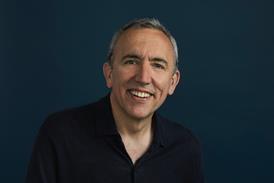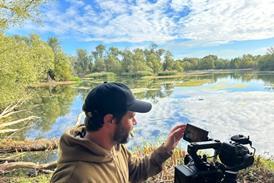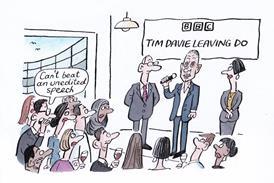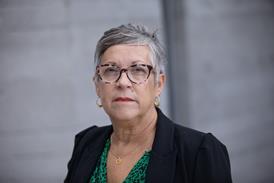Its broadcast specialist Blue (recipient of a Promax award for post house of the year) continues to trade under its own name but is also set to benefit from the firm’s ground-breaking business model of outsourcing large volumes of CG work to one of PFL’s seven subcontinental facilities. The work will be sent via FTP and hard drives but project managed from London.
“We’re mainly sending feature work back [including 2,500 shots for Tales of the Riverbank and Agent Crush] but we‘re receiving a surprising amount of commercials projects in reverse for finishing,” reports managing director Simon Huhtala.
PFL will look to internationalise its offering in the new year, he says, with outposts in Asia or North America.
Internationalisation was a key theme this year with companies seeking to capitalise on the ease with which content can now be transferred round the globe.
Evolutions, which was named Broadcast’s post house of the year in January, took the opportunity to establish a New York presence on the back of work posting Make Me a Supermodel for Tiger Aspect. It follows in the New York footsteps of commercials facilities such as The Mill (which also has an LA wing), Absolute (which launched in the Big Apple this year) and Smoke and Mirrors. Commercials and design house Golden Square became the first UK post firm to establish itself in China last January, while Glassworks now shuttles shots back and forth to an Amsterdam branch.
One group that embedded inter-national links long before all of the current activity is Ascent Media, whose reach stretches from LA to Mexico, and Spain to Singapore. Yet it has had a rocky year restructuring its London division. Creative services managing director Paul Jones was removed in April with the company saying it wanted a stronger creative presence at the head of the company. Paul Kind, Ascent’s head of media, also left. Neither position has been filled. Instead the group is run by David Barrett, with Simon Constable and Adrian Bull overseeing sales, content management and technical development respectively until an overall president is appointed.
Ascent Media’s restoration and duplication services have been integrated with St Anne’s. DVD arm Stream is also downsizing into the St Anne’s building on Wardour Street. Digital intermediate facility One Post has merged into film lab Soho Images.
“We want to offer an end-to-end solution in one facility rather than through boutique companies,” says Barrett, adding: “It’s been a fairly tough year. We’ve seen a marked decrease in post budgets and a significant shift from 16mm to HD.”
To counteract the revenue loss, St Anne’s Post, hitherto a drama-focused editing and grading facility (it graded Robin Hood), will take on more light entertainment work. Katie & Peter Unleashed is its biggest win to date.
The BBC’s decentralisation could hurt those facilities adjacent to TV Centre which have relied on a steady stream of corporation work. Factual and drama house Clear Cut has laid plans this year to pre-empt the shortfall. “We had to get some strategy in place to keep the impact minimal,” says managing director Jo Beighton. “We’ve diversified our client base, developed relationships with indies and we’ve a much healthier spread than two years ago.”
Darlow Smithson drama-doc Impact Earth for Five is one result although it also picked up an all-important volume booking for the BBC’s 30-week series Watchdog when Uncle moved from Wood Lane to Soho. “Next year we’ll take a deep breath and hold our nerve,” she adds. “Everyone is fighting to win commissions and perhaps those with the bigger infrastructure and resources are those that will cope best.”
Bread and butter offline work is a loss leader for even the largest players who use their banks of Avid Adrenalines to pull work into more expensive grading and audio departments. Housing volumes of offline units is the only way to counter the increased adoption by producers of in-house workstations.
At The Farm, offline is essential, if only to bring in work to its high-end finishing facilities. “The knowledge required to deliver specialised grading and audio-mixing means no one will ever do it all in-house,” argues Sargent.
No one is especially agitated at the prospect of a newly independent army of BBC post-production resources but the jury remains out on this until potential buyers are announced. “The concerns remain the same,” notes UK Screen’s Davenport. “What effect will a new dominant player have on the facilities market? To what extent will post commissions be tied into the sale and how are future BBC commissions to be evaluated?”
UK Screen is working with the BBC and other broadcasters to establish a standard approach to file-based workflows including an agreement on uniform HD formats.
Its membership increased by 38 to 170 this year as it embraced studios, OB and equipment hire companies and is now a sizeable trade body capable of representing the industry across a wide range of disciplines.


























No comments yet